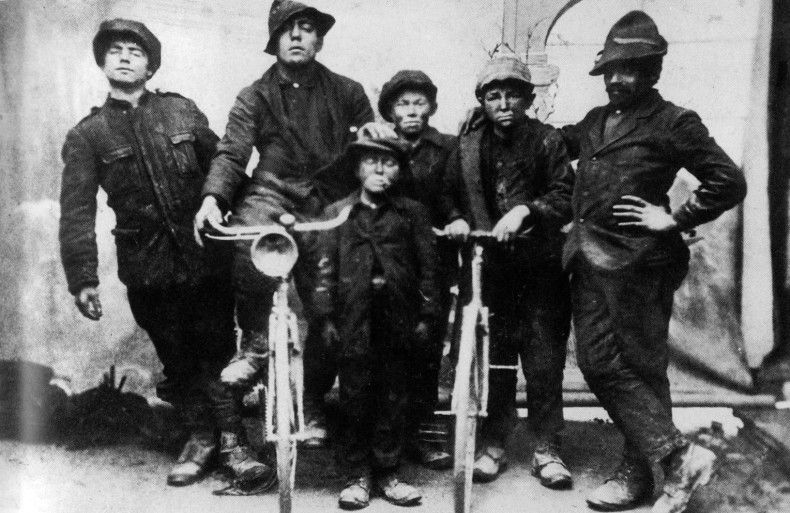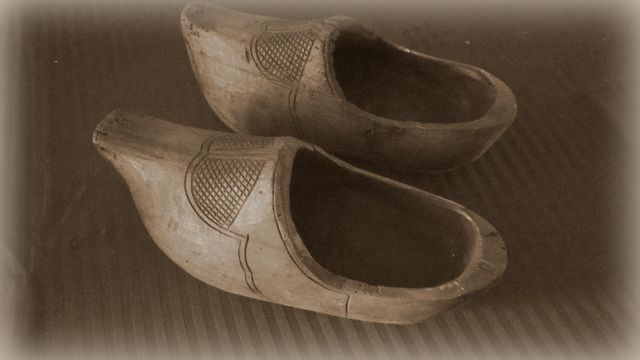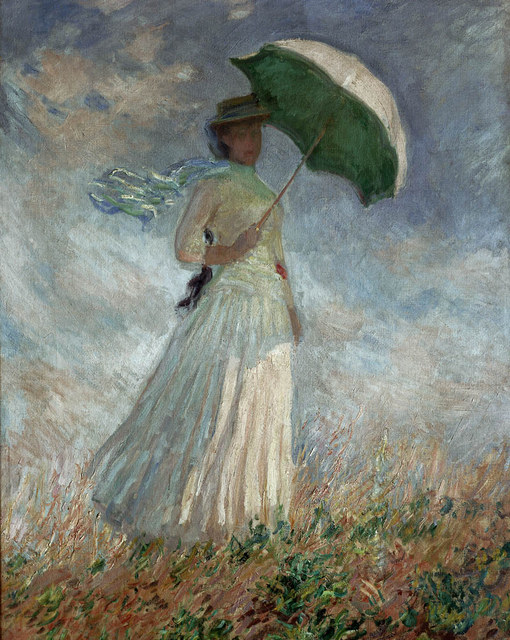Lo and Behold! Posted by Serena on Aug 19, 2015 in Grammar
One of the many mysteries of the Italian language is the crazy amount of ways of saying ‘the’. Not content with having il,i,la,le and l’ the Italians just had to come up with lo and gli! Well, ours is not to reason why … but to find out when and how.
Rules for using lo/gli:
1. when a masculine word begins with the letter ‘s’ followed by another consonant, e.g.:
Gli spazzacamini di una volta
lo spazzacamino = the chimney sweep, plural: gli spazzacamini, e.g. è arrivato lo spazzacamino = the chimney sweep has arrived
lo scoiattolo = the squirrel, plural: gli scoiattoli, e.g. Renata ci ha fatto vedere gli scoiattoli che ha fatto imbalsamare = Renata showed us the squirrels that she had had embalmed
lo specchio = the mirror, plural: gli specchi, e.g. preferisco lo specchio con la cornice dorata = I prefer the mirror with the golden frame
lo scrittore = the writer, plural: gli scrittori, e.g. Giovanni, l’amico di Davide, vuole fare lo scrittore = Davide’s friend, Giovanni, wants to be a writer
lo studente = the student, plural: gli studenti, e.g. gli studenti sono in vacanza = the students are on holiday
2. when a masculine word begins with the letter ‘z’, e.g.:
Gli zoccoli
lo zaino = the rucksack, plural: gli zaini, e.g. abbiamo lasciato gli zaini in macchina = we left the rucksacks in the car
lo zerbino = the doormat, plural: gli zerbini, e.g. lo zerbino è tutto infangato = the doormat is all muddy
lo zio = the uncle, plural: gli zii, e.g. questo è lo zio di Giovanni = this is Giovanni’s uncle
lo zoccolo = the clog, plural: gli zoccoli, e.g. gli zoccoli sono consumati = the clogs are worn out
lo zucchero = the sugar, plural: gli zuccheri, e.g. dicono che lo zucchero di canna fa meglio di quello bianco = they say that cane sugar is healthier than white sugar
3. when a masculine word begins with a vowel: a, e, i, o, u. In this case we drop the ‘o’ from the lo and put an apostrophe instead, e.g.:
L’ombrello.
l’albero = the tree, plural: gli alberi, e.g. quest’anno gli alberi di mele hanno fatto molti frutti = this year the apple trees made a lot of fruit
l’elefante = the elephant, plural: gli elefanti, e.g. gli elefanti africani sono più grandi di quelli indiani = African elephants are bigger than the Indian ones
l’imbuto = the funnel, plural: gli imbuti, e.g. mi passi l’imbuto, per favore? = can you pass me the funnel, please?
l’ombrello = the umbrella, plural: gli ombrelli, e.g. prendi l’ombrello, che piove = bring the umbrella because it’s raining
l’uscio = the house door, plural: gli usci, e.g. l’uscio è chiuso a chiave = the house door is locked
There are three more groups of words that require the article lo/gli, but they are quite limited. They are:
masculine words starting with ‘ps’, e.g.
lo psicologo = the psychologist, plural: gli psicologi
lo psichiatra = the psychiatrist, plural: gli psichiatri
masculine words starting with ‘pn’, e.g.
lo pneumatico = the tyre, plural: gli pneumatici. N.B. most people tend to say il pneumatico!
masculine words staring with ‘gn’, e.g.
lo gnocco = the dumpling, plural: gli gnocchi. N.B. it’s very common to hear i gnocchi
lo gnomo = the gnome, plural: gli gnomi.
Now it’s your turn! Put the correct article into the following sentences:
il mio televisore nuovo ha … schermo da 40 pollici = my new TV set has a 40 inch screen
mi fa male … schiena = my back is hurting
Mario ha … occhi marroni = Mario has brown eyes
Lucia è … zia di Andrea = Lucia is Andrea’s auntie
i pipistrelli hanno … ali pur essendo dei mammiferi = bats have wings despite being mammals
… alla prossima!

Build vocabulary, practice pronunciation, and more with Transparent Language Online. Available anytime, anywhere, on any device.







Comments:
Samuele:
A very interesting topic! I’d like to make my contribution by adding the point of view of an Italian.
Undeniably we Italians have several articles as Serena explained depending on whether the name is singular or plural, masculine or feminine, or It is even related to the starting letter(s)….
Nevertheless, even for an Italian it is not as easy as you might think: I don’t count how many people make mistakes anymore. For instance for a great number of Italians will remain for ever a mystery why the word “pneumatici” holds the article “gli” instead of “I”…
Instead the biggest difficulty an Italian must face with the English article “the” lies in deciding whether the article is necessary or not. It might sound odd but, even now, I remember when at high school I spent entire afternoons learning dozens and dozens of rules which explained when the article is necessary and when not…and the relative exceptions..
Since in Italian the article is almost always necessary, once you know which article you have to use,, Bobs’s your uncle!
Not to mention the use of the adjectives in English! I have always told that English is more versatile than Italian because it allows you to use an extraordinary large number of adjectives before a noun. And if a remember correctly there is even a rule codifying the order: “general description, detailed description, dimension, age, shape, color, origin, material, purpose”…I know that in normal use it comes naturally but
20 years ago only the fact that a rule was tought struck me much.
Serena:
@Samuele Ciao Samuele! Sono d’accordo con te: dicono che l’italiano sia difficile, ma quando sei abituato a mettere l’articolo dappertutto o ad usare i verbi riflessivi ed omettere gli aggettivi possessivi, l’Inglese sembra molto più complicato.
Un saluto da Serena
Greg Speck:
Thanks, first time it was presented simply!